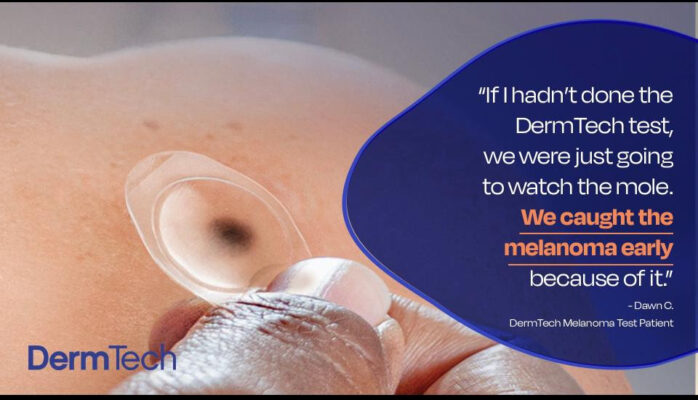

As the weather gets warmer, we start to shed our winter clothes and dawn the shorts, T-shirts and bathing suits.
For many people, the longer days and extra sunshine mean it’s time to get their tan on. That also means sunburns and with each sunburn a person gets, their risk for skin cancer increases.
One of the more serious and deadly forms of skin cancer is melanoma.
About 97,000 new cases of melanoma occur each year.
Most of us have “moles” on our skin. These are mostly round, light or dark brown, pigmented spots that can occur anywhere on our bodies. Some may notice their mole is growing or changing in color and become concerned.
Healthcare professionals are trained to pick up on the nuances of a troublesome mole. We look for asymmetry, irregular borders, color changes or multiple colors, enlarging diameter and an increase in elevation. With certain characteristics, a biopsy is necessary, but for those indeterminate ones there is a new test called the DermTech Melanoma Test. It is a novel new test where the practitioner painlessly applies and removes four stickers in succession to the mole in question and then applies them each to a test card.
The stickers collect skin cells from the entire surface from the mole and the surrounding skin. Once the samples arrive to the Gene Lab, RNA and DNA molecules are isolated and amplified for genomic analyses. They test for several genomic sequences common to melanoma. The good news is that if the test is negative it has a 97% predictive value for being normal. If it’s positive, then further excisional biopsy is necessary. We offer this test, so if you have a concerning mole, we would be glad to take a look at it.
If it qualifies to have the DermTech Melanoma test, we will be sure and use it. Just remember this summer is if you’re going to be outside for any significant amount of time, be sure and wear your sunscreen and help reduce your chance of melanoma, or any form of skin cancer.
